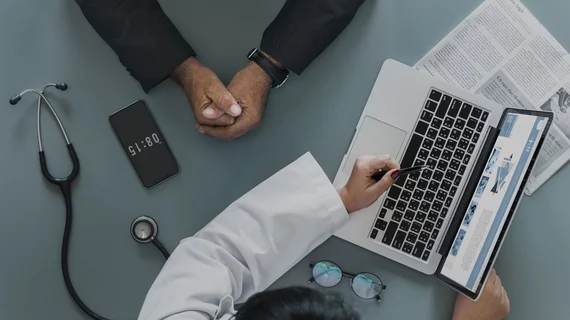Key trends among healthcare consumers in 2019
As consumers see growing convenience in nearly every industry through digital platforms, more are hungry for better options when it comes to their healthcare choices. In particular, tech-savvy consumers have desires for major upgrades to the healthcare billing process to pay medical bills.
Many of these trending consumer preferences were outlined in the 2019 Healthcare Consumer Study from Cedar and Survata. Knowing more about consumers can help healthcare providers with revenue cycle management and the patient relationship. Survata interviewed 1,607 online respondents between Aug. 27, 2019 and Sept. 1, 2019 who visited a doctor and paid a medical bill in the last 12 months for the study.
Compared to other industries, including online retail, online banking, online travel and insurance, healthcare was ranked 4th best out of five in its digital capabilities.
Currently, the way healthcare providers process patient billing and payment doesn’t totally line up with consumers’ desires and expectations.
“The majority of consumers are still being notified about a healthcare bill via outdated paper methods,” the study reads.
In fact, 74% of providers use traditional mail, while only 55% have an online patient portal. About one-third of providers use email and just 15% use text to notify patients about bills. The post-visit part of a healthcare experience, such as the billing and insurance follow-up, was rated as the worst phase of the patient journey by 45% of consumers.
In general, consumers want more transparency and better flexibility when it comes to paying their medical costs. The findings come at a time when Americans are paying more out-of-pocket for healthcare, with higher premiums and deductibles.
A little more than one-third (34%) of consumers said they had an unpaid medical bill go to collections. Sadly, many of these medical bills were for small amounts. In a study of 4 million credit reports, more than half of annual medical collections were for less than $600.
While patients actually do want to pay their medical bills, getting information on how much they will owe for care services is hard. Of the 60% of consumers who tried to seek out-of-pocket cost estimates before their visit, about half succeeded in getting the information. More than half of consumers also said they wanted flexible payment plans if offered and 50% expected more clarity on their bills.
Unfortunately, 1 in 3 Americans said they didn’t think providers did enough to improve the patient billing and payment process. And about half were frustrated with a lack of digital administrative processes, such as online bill-pay and access to insurance information.
Consumers are expecting billing upgrades, including 41% who want to see consolidated bills across multiple providers and episodes of care; 38% want improved customer support for immediate billing questions; and 33% want digital payments options.
Providers should pay attention to these preferences, 1 in 5 consumers left a provider because of a poor digital experience and given a bad review as a result.
Younger consumers are overwhelmingly more likely to express frustration over a provider’s lack of adoption of digital patient administrative processes––66% of adults between 18 and 24 compared to only 29% of adult 65 and older.

